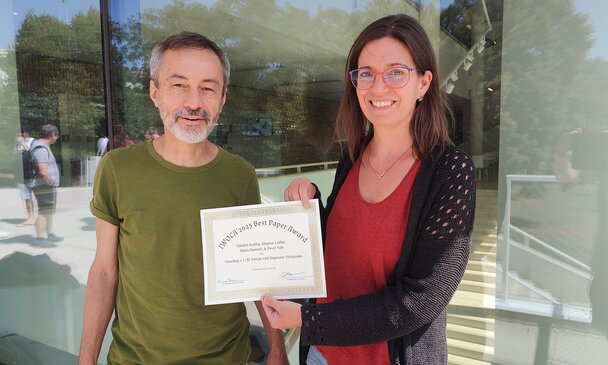
Members of the G²OAT research group from the Department of Theoretical Computer Science at the FIT CTU presented the results of their research through research papers at the prestigious international conference IJCAI 2024 (33rd International Joint Conference on Artificial Intelligence). The conference is considered as one of the most important conferences in the field of Artificial Intelligence with the highest A* rating and is known for its demanding review process. In a competition of nearly 6,000 research papers, less than 14% of the submitted papers were selected for the main conference session, and three of them were from researchers at FIT CTU. This year's conference welcomed participants in early August on Jeju Island, Republic of Korea.
The first paper, "Aggregation of Continuous Preferences in One Dimension", by Alberto Del Pia, Dusan Knop, Alexandra Lassota, Krzysztof Sornat and Nimrod Talmon, presents a model for aggregating preferences expressed as one-dimensional functions. The second paper, "Individual Rationality in Topological Distance Games is Surprisingly Hard", by Argyrios Deligkas, Eduard Eiben, Dusan Knop and Simon Schierreich, is devoted to the problem of finding a stable agent assignment on a topology. The third paper, "Evaluation of Project Performance in Participatory Budgeting", by Niclas Boehmer, Piotr Faliszewski, Łukasze Janeczek, Dominik Peters, Grzegorz Pierczyński, Simon Schierreich, Piotr Skowron, and Stanisław Szufa, presents a framework for more easily understandable and explainable participatory budgeting results. In addition to the above-mentioned papers in the main program, Shimon Schierreich also presented during the Doctoral Consortium part of the conference his doctoral project on "Multivariate Analysis and Structural Restrictions in Computational Social Choice", which deals with focus on computationally hard problems in the area of computational social choice.
The IJCAI conference aims to support research in artificial intelligence. Hundreds of researchers and experts from all over the world attend the conference each year. By having the opportunity to present their research papers, experts from FIT CTU were able to share their findings with other scientists working in various areas of artificial intelligence.



